

Best Flipkart Review Sentiment Analysis – A Complete MLOps-Based Web App
Flipkart Review Sentiment Analysis
Overview
This Flipkart Review Sentiment Analysis project is like a full-on machine learning setup that checks how people feel based on their product reviews. It uses some solid MLOps stuff to help with building, tracking, and deploying NLP models easily.It’s got cool tools like DVC for data versioning, MLflow to keep track of experiments, Docker for containers, and GitHub Actions + AWS EC2 for auto deployment. The whole thing’s built with Python, and it uses Flask to turn the sentiment analysis model into a web app.Whether you’re working solo or with a team, this project is super helpful if you’re looking for a ready-to-go sentiment analysis pipeline that actually works in real-world setups.
Project Summary Table
| Project Name | Language Used |
|---|---|
| Flipkart Review Sentiment Analysis | Python |
Download New Real Time Projects :-Click here
Project Description
The aim of this project is to perform sentiment classification on Flipkart product reviews, identifying whether a review expresses a positive, negative, or neutral sentiment. This is achieved through deep learning techniques integrated with a robust machine learning pipeline and deployed in a web-accessible format.
All pipeline stages follow modular architecture and are built using professional coding practices and versioning protocols. This ensures scalability, reproducibility, and collaboration readiness.
Key Components and Features
MLOps Pipeline Stages
The entire machine learning lifecycle is handled through a well-structured and modular pipeline:
- Data Ingestion: Uses
gdownto fetch datasets from Google Drive, followed by unzipping and storing in a defined artifacts folder. - Data Validation: Checks for format consistency and completeness. Stores validation logs in
status.txt. - Data Transformation: Includes:
- Tokenization
- Stopword removal
- Stemming and Lemmatization
- TF-IDF Vectorization
- Word Embedding with context-based feature engineering
- Model Training: A Keras-based deep learning model with Embedding + LSTM architecture. Model and tokenizer are saved as
model.h5andtokenizer.pickle. - Model Evaluation: Uses standard classification metrics (accuracy, precision, recall, F1-score) and logs performance with MLflow.
- Model Deployment: The trained model is integrated into a Flask web app for prediction.
MLflow + DagsHub Integration
The project integrates MLflow for logging and DagsHub for cloud-based experiment tracking. With secure token-based authentication, experiments are visualized and monitored through the DagsHub interface. This allows for:
- Logging model parameters and evaluation metrics
- Tracking experiments across different datasets
- Maintaining complete reproducibility
CI/CD Deployment via AWS EC2 and GitHub Actions
This project is designed to support automated deployment in a production environment using GitHub Actions and AWS EC2:
- Docker image is built and pushed to AWS ECR
- The image is pulled into an EC2 instance for deployment
- A GitHub-hosted or EC2-based self-hosted runner automates pipeline execution
IAM permissions, ECR setup, Docker installation, and secret configurations are all fully documented and implemented.
Available Features
- Full-fledged MLOps pipeline with modular architecture
- Sentiment classification using deep learning (LSTM)
- Experiment tracking via MLflow and DagsHub
- Data and model versioning using DVC
- Web interface via Flask to:
- Predict sentiment from user input
- Trigger training from the UI
- Integrated logging system to track pipeline events
- GitHub Actions workflow for CI/CD automation
- Dockerized environment for reproducibility and deployment
Technologies Used
- Programming Language: Python
- Framework: Flask (Web), Keras/TensorFlow (Model)
- Libraries: NumPy, Pandas, NLTK, Scikit-learn, MLflow, DVC, Matplotlib, Seaborn
- Environment Management: Conda (recommended), Virtualenv (alternative)
- DevOps: Docker, GitHub Actions, AWS EC2, ECR
- NLP: Tokenization, Lemmatization, Word Embeddings, TF-IDF
Folder Structure (Partial)
Sentiment-Analysis-of-Flipkart-Reviews-main/
│
├── src/reviewAnalysis/
│ ├── components/
│ ├── config/
│ ├── pipeline/
│ ├── utils/
│ └── constants/
│
├── app.py # Flask app
├── main.py # Main pipeline runner
├── Dockerfile # Containerization script
├── requirements.txt # Project dependencies
├── research/ # Jupyter notebooks and datasets
├── dvc.yaml # DVC pipeline definition
└── config/config.yaml # Configuration file
We have projects Available in all languages:–Click Here
flipkart review sentiment analysis github
flipkart review sentiment analysis pdf
flipkart review sentiment analysis 2022
flipkart reviews sentiment analysis using python
flipkart product reviews dataset
flipkart review checker
customer review sentiment analysis project
amazon product review sentiment analysis project
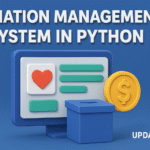

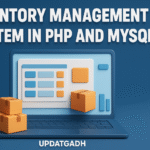

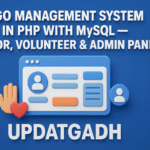


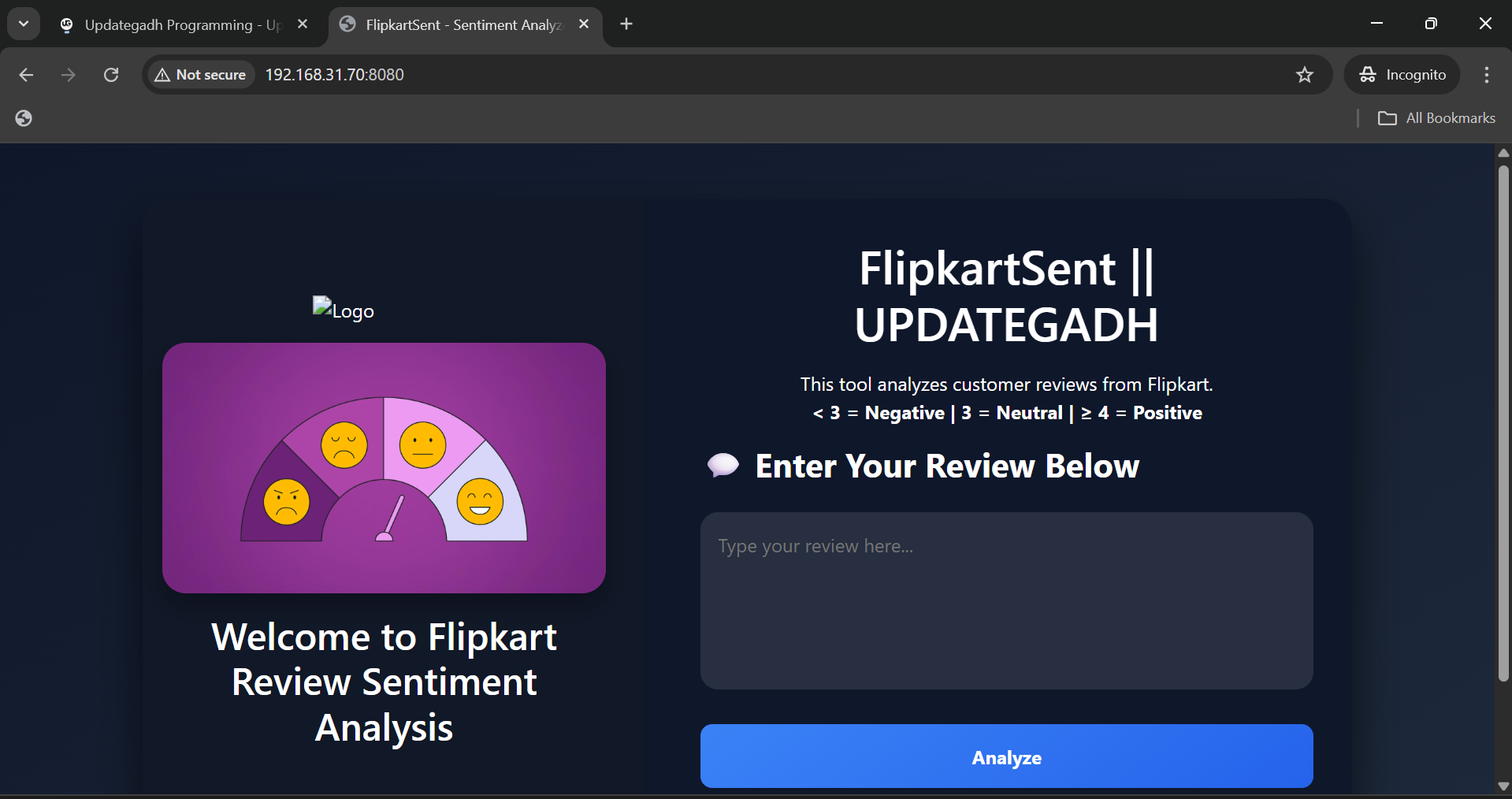
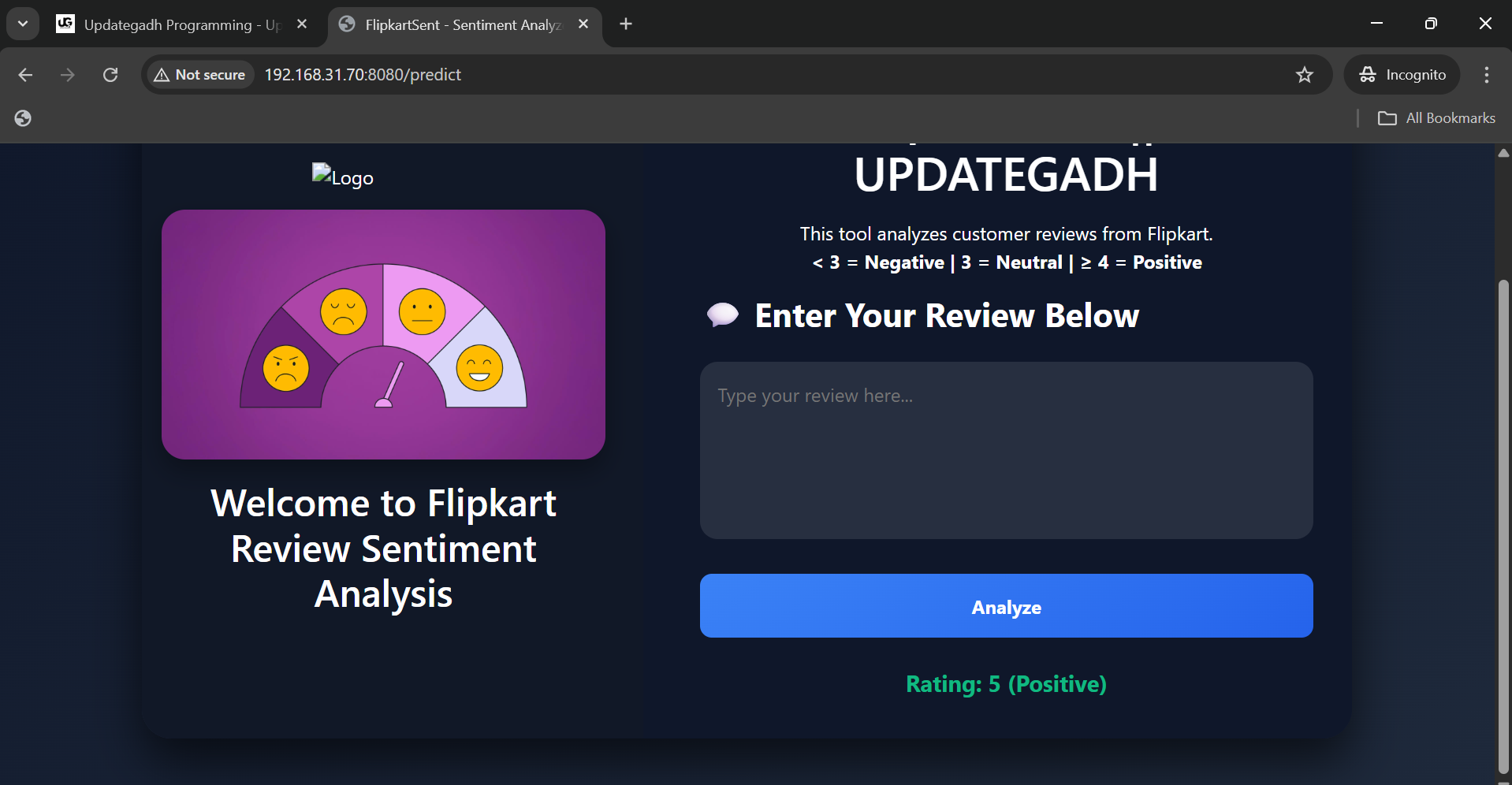
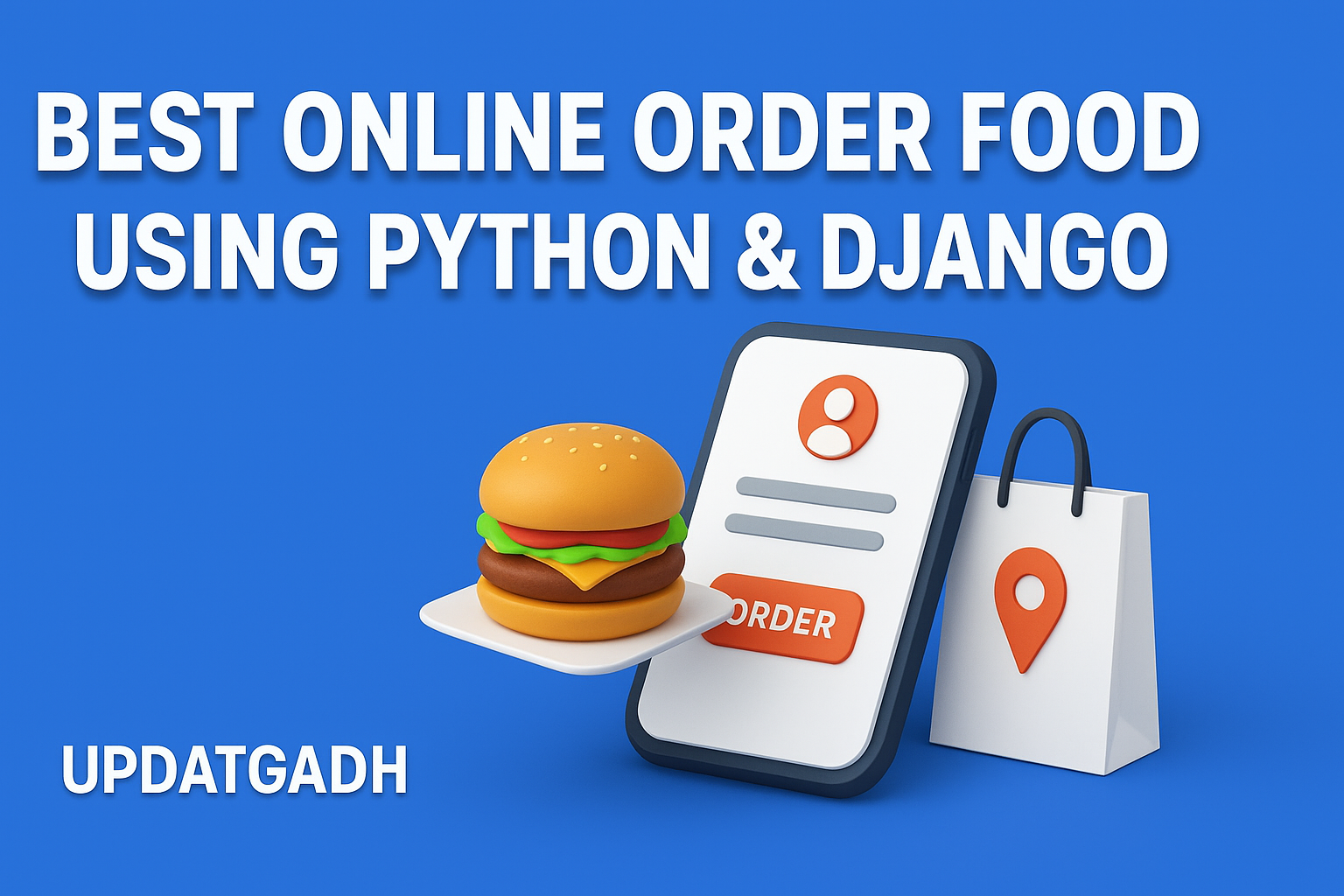
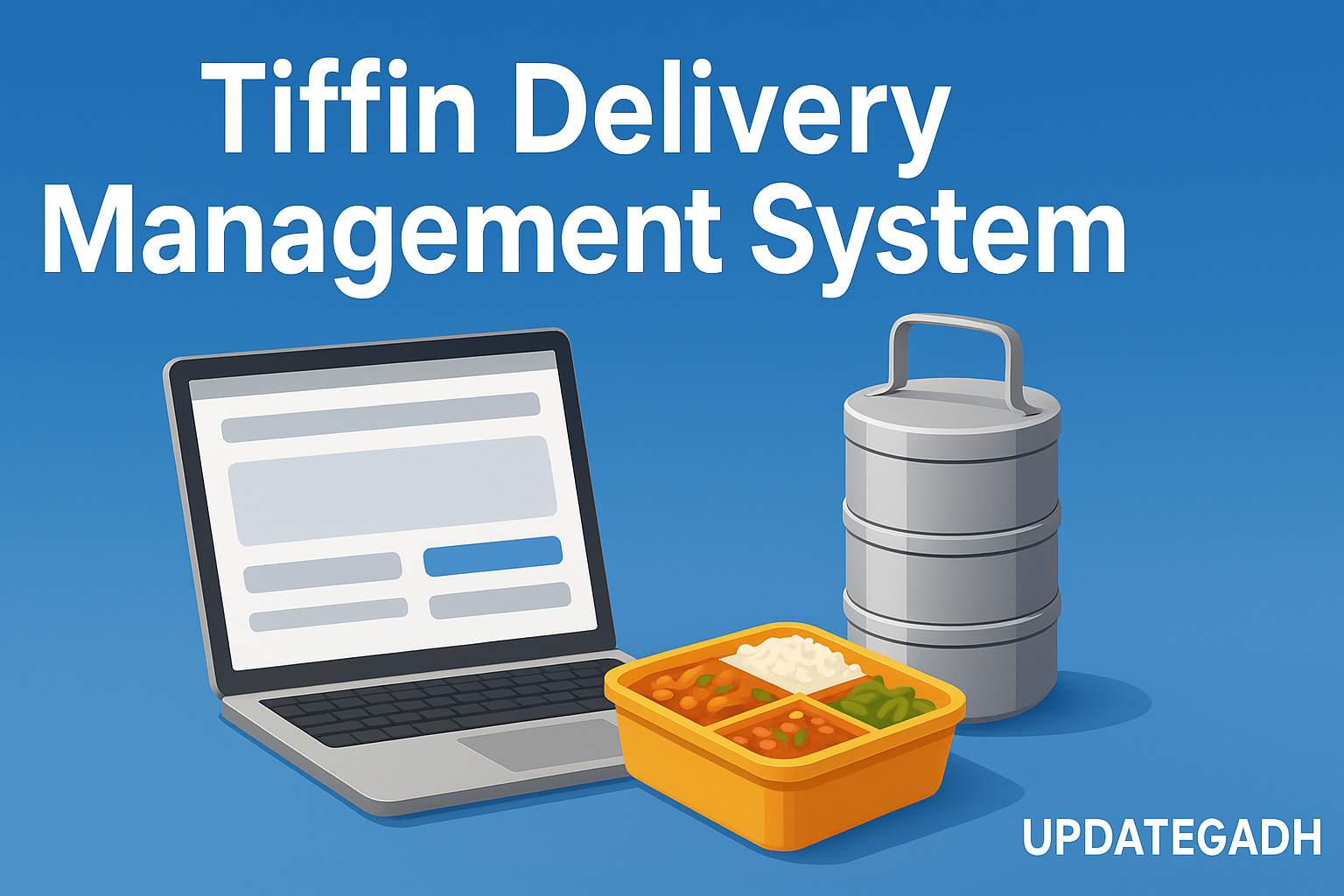
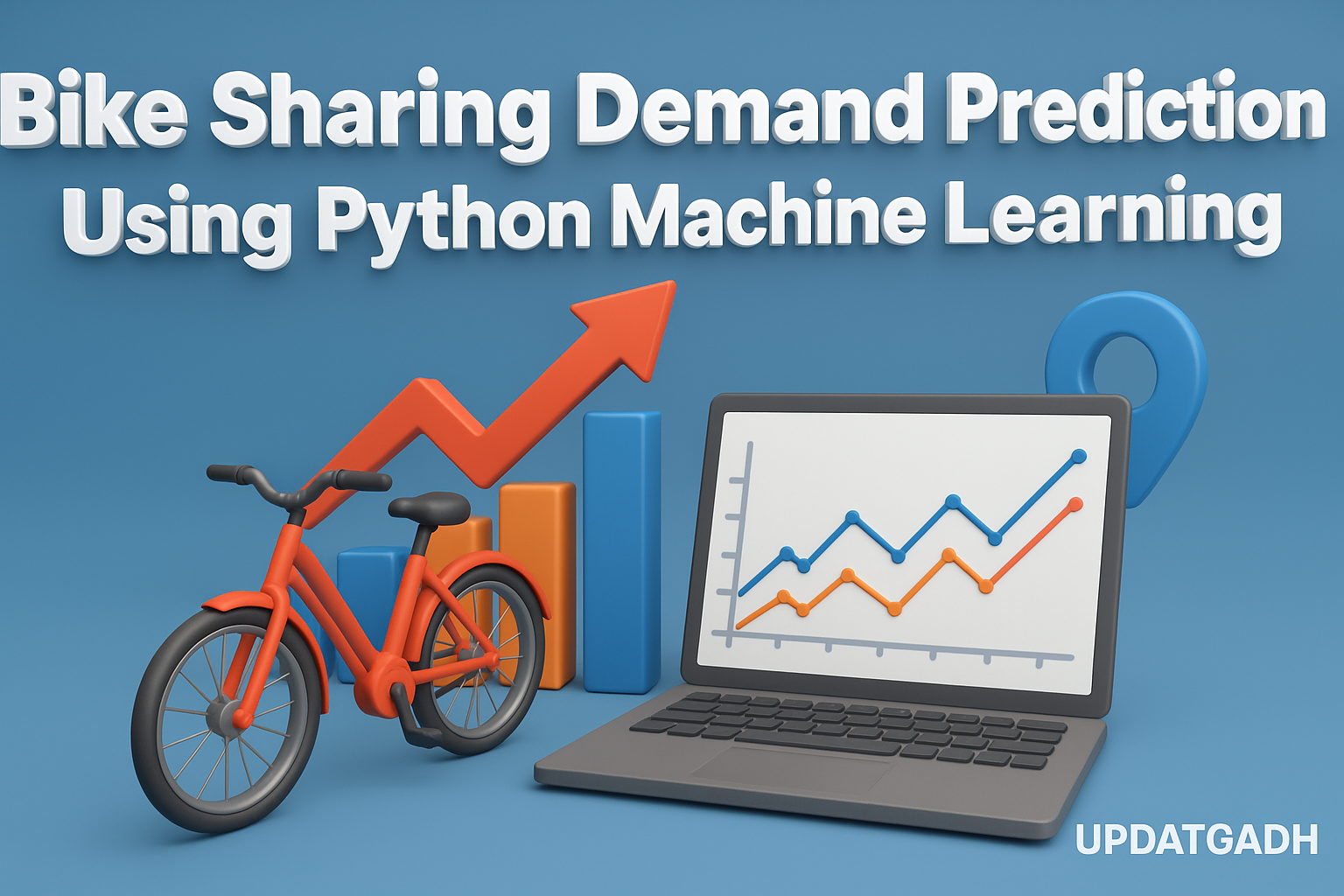
Post Comment